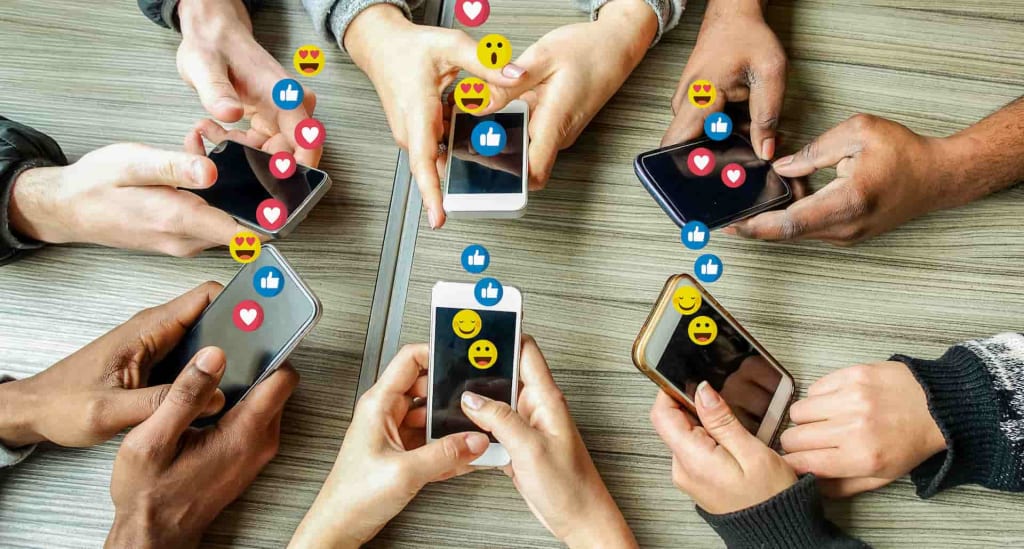The Rise of Social Media Addiction: Understanding its Causes and Effects
A Comprehensive Guide on How to Overcome Social Media Addiction

Social media has revolutionized the way people interact, communicate, and share information. With the increasing use of smartphones and the internet, social media platforms have become an integral part of our daily lives. While social media offers numerous benefits such as connecting with friends and family, it has also become a source of addiction for many. In this article, we will explore the concept of social media addiction, its causes, and its effects on individuals.
What is Social Media Addiction?
Social media addiction, also known as social media disorder, is a condition where individuals spend an excessive amount of time on social media platforms. Social media addiction is characterized by the compulsive use of social media, to the point where it interferes with daily life activities such as work, school, and social interactions. The addiction can lead to negative consequences such as reduced productivity, social isolation, and even mental health issues.
Causes of Social Media Addiction
There are various factors that contribute to social media addiction, including:
1- Dopamine Release: Social media platforms trigger the release of dopamine, a feel-good hormone in the brain. When we receive likes, comments, and shares, our brain releases dopamine, making us feel happy and satisfied. This pleasure response can lead to addiction, as individuals seek more and more social media engagement to experience the same level of pleasure.
2- FOMO: Fear of missing out (FOMO) is another factor that contributes to social media addiction. Social media creates a sense of urgency to be connected and stay updated on the latest news, trends, and events. Individuals feel like they are missing out if they are not constantly checking their social media platforms.
3- Peer Pressure: Peer pressure also plays a role in social media addiction. People want to fit in and be part of a group. Social media provides a way to connect with others and be part of a community. The need to feel accepted and connected can lead to excessive use of social media.
Effects of Social Media Addiction
Social media addiction can have a negative impact on individuals, both physically and mentally. Some of the effects of social media addiction include:
1- Reduced Productivity: Social media addiction can lead to reduced productivity, as individuals spend more time on social media platforms instead of focusing on work or studies.
2- Social Isolation: Excessive use of social media can lead to social isolation, as individuals prefer virtual interactions over face-to-face interactions. This can lead to feelings of loneliness and depression.
3- Anxiety and Depression: Social media addiction can also lead to anxiety and depression. The constant need for social media engagement and validation can lead to feelings of anxiety, while the fear of missing out can lead to depression.
4- Poor Sleep Quality: Social media addiction can also lead to poor sleep quality. The blue light emitted by electronic devices can disrupt the sleep-wake cycle, making it harder to fall asleep and stay asleep.
5- Physical Health Issues: Social media addiction can also have physical health consequences. The sedentary lifestyle associated with excessive social media use can lead to weight gain, poor posture, and other health problems.
How to Overcome Social Media Addiction
Social media addiction is a real problem, and it is important to take steps to overcome it. Some of the ways to overcome social media addiction include:
1- Set Boundaries: Setting boundaries around social media use can help overcome addiction. This can include limiting social media use to certain times of the day, or setting a time limit for social media use.
2- Find Alternative Activities: Finding alternative activities to social media can also help overcome addiction. This can include engaging in physical activities such as sports, or pursuing hobbies such as painting or playing music.
3- Seek Professional Help: If social media addiction is causing significant problems in daily life, seeking professional help may be necessary.
Overall, social media addiction is a real concern that requires attention and action to overcome, and with the right tools and support, individuals can regain control of their social media use and improve their overall well-being.
About the Creator
Melih ÇEVİK
Hello, I'm Melih. I'm 20 years old. I am studying Industrial Engineering at Karadeniz Technical University. I also write blogs, articles and columns. I hope you enjoyed reading what I wrote. Have a nice day.
Enjoyed the story? Support the Creator.
Subscribe for free to receive all their stories in your feed. You could also pledge your support or give them a one-off tip, letting them know you appreciate their work.






Comments
There are no comments for this story
Be the first to respond and start the conversation.